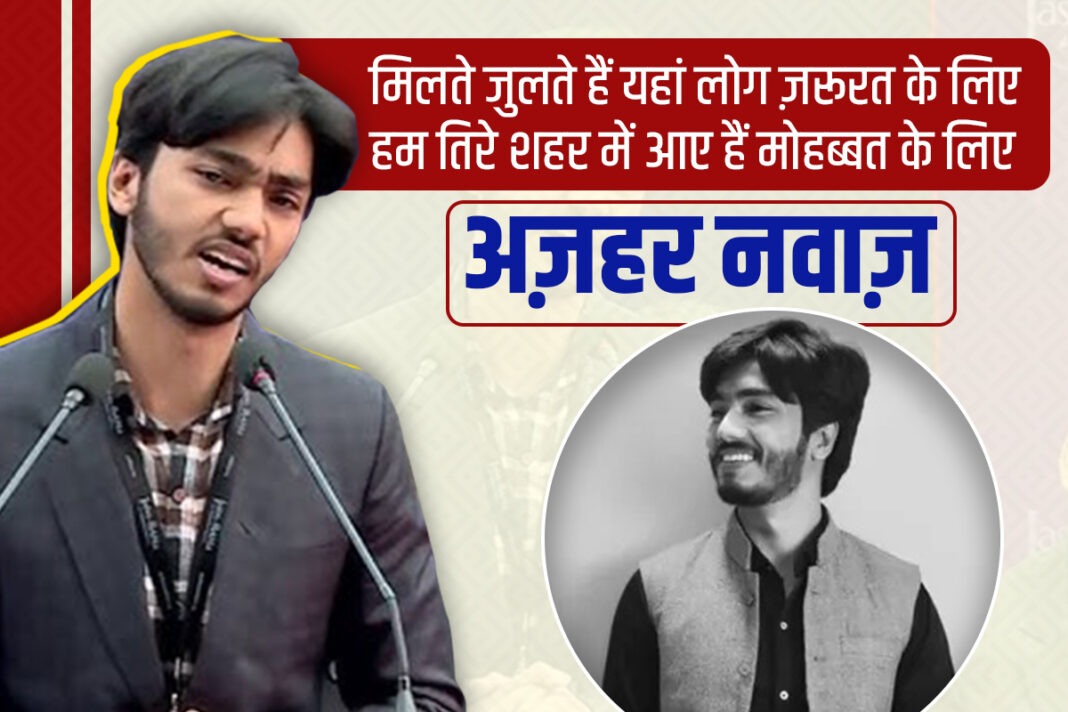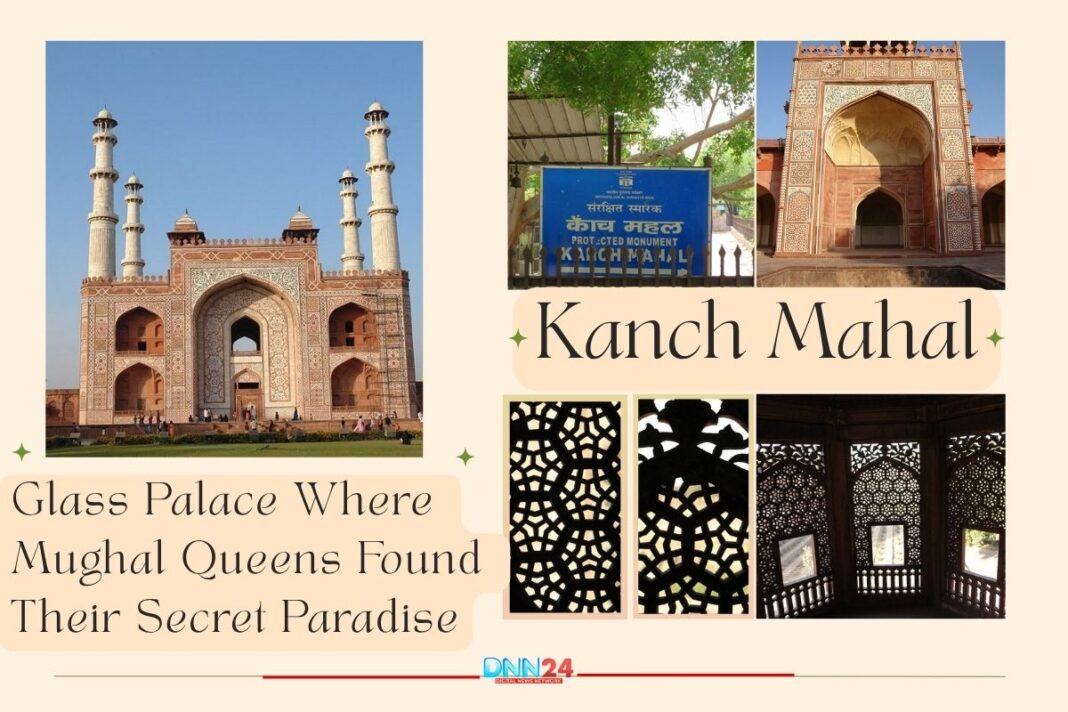Tamil Nadu has given India countless poets whose words changed rivers into metaphors and ordinary streets into verses of longing. Yet some names remain half-hidden, appearing only in whispered conversations among elderly poetry lovers or in faded notebooks tucked inside family cupboards. Badr Jamali is one such name. Unlike the celebrated voices that filled auditoriums or earned government awards, this figure allegedly walked a quieter path, writing poetry that aimed to build bridges during times when communities needed them most.
hum ne aap ke gham ko ham-safar banaya hai
Badr Jamali
yani zindagani ko mo’atabar banaya hai
But here lies the puzzle: when we search for solid proof of his existence, the archives stay surprisingly silent.The story of Badr Jamali presents a challenge for anyone interested in Indian literary history. While oral traditions and local memories occasionally mention poets who worked outside mainstream recognition, verifying their lives requires evidence that often does not survive.
har gham-e-zamana ko dil mein di jagah hum ne
Badr Jamali
KHub jo mila us ko KHub-tar banaya hai
Documents get lost, collections remain unpublished, and regional poets sometimes vanish from formal records altogether. This article examines what little can be gathered about Badr Jamali while acknowledging the substantial gaps in documented information. Understanding why such figures remain obscure teaches us about how literary fame gets constructed and who gets remembered in official histories.
inT aur patthar ka ghar nahin mila to kya
Badr Jamali
dushmanon ke dil mein bhi hum ne ghar banaya hai
What Local Traditions Sometimes Claim
According to fragmentary oral accounts, Badr Jamali is said to have lived modestly, writing poetry that addressed communal harmony during difficult periods. Stories describe him organising informal gatherings where people from different religious backgrounds shared verses about peace and understanding.
apne chehre par kai chehre liye
Badr Jamali
hum baDe hi parsa ban kar jiye
Some accounts mention that he composed in multiple languages to reach a wider audience, using simple words that farmers and labourers could appreciate, rather than complex literary references that only scholars understood.These stories, if true, would place him among poets who chose social impact over personal fame.
raaz ulfat ka chhupane ke liye
Badr Jamali
zabt-e-girya bhi kiya lab bhi siye
Such figures existed throughout Indian history, writing not for anthologies but for immediate effect, hoping their words might calm tensions or remind neighbours of shared humanity. They performed at local festivals, religious gatherings, and community meetings rather than prestigious literary conferences. Their work served practical purposes, addressing specific conflicts or celebrating particular reconciliations.
jin mein chalti hain hawaen tez tez
Badr Jamali
aisi rahon mein jalae hain diye
However, without written records, these accounts remain impossible to verify. No dated manuscripts confirm his authorship. No contemporary witnesses left written testimonies. No photographs or government documents establish exactly when he lived or where he worked. The stories preserve genuine memories of a real person, or they represent a composite figure, blending traits from several different poets into one symbolic character who represents ideals rather than historical fact.
jo bhi hain is bazm mein madhosh hain
Badr Jamali
aur ye madhoshiyan hain bin piye
Why Some Poets Disappear From History
The absence of documentation about Badr Jamali reflects broader patterns in how literary histories get written. Official recognition often goes to poets who published through established channels, received patronage from wealthy sponsors, or won competitions that were covered by newspapers. Poets working in regional languages sometimes got overlooked by national archives.
zindagi ka hai ye bhi koi Dhang
Badr Jamali
na koi aarzu na koi umang
Those who never moved to major cities remained invisible to metropolitan critics who shaped canonical lists.Economic factors mattered enormously. Publishing required money. Attending conferences required travel funds, and building a reputation required connections with editors, publishers, and influential critics.
hosh ka tur ya KHirad ka rang
Badr Jamali
aashiqi ke liye hain donon nang
Poets from modest backgrounds faced barriers at every step. Even brilliant work might never reach audiences beyond immediate localities if the poet lacked resources for broader distribution. Additionally, poets who wrote primarily for oral performance rather than publication left fewer traces. Their verses lived in memory rather than on paper.
qatre mein dariya zarre mein sahra dikhai de
Badr Jamali
wa dil ki aankh ho to tamasha dikhai de
Religious and linguistic minorities faced particular challenges getting recognised. Urdu poets working in Tamil-speaking regions occupied uncertain positions, sometimes claimed by Urdu literary circles, sometimes ignored by Tamil literary establishments, and often found to be falling between the cracks of both. Documentation practices varied widely across regions and communities. Some areas maintained careful records while others relied on memory. Natural disasters, political upheavals, and simple neglect destroyed countless documents over decades.
teri nazir husn-o-ada mein koi nahin
Badr Jamali
mujh ko bata de koi jo tujh sa dikhai de
The Value of Incomplete Stories
Even when we cannot confirm biographical details, examining the stories people tell about missing poets reveals essential truths. The fact that communities remember someone attempting to bridge divides through poetry indicates real historical needs for such bridge-building. Whether Badr Jamali existed exactly as described matters less than understanding the circumstances that would make his story meaningful to those who preserve it.
apni buraiyon pe agar jaegi nazar
Badr Jamali
duniya mein har koi hamein achchha dikhai de
India’s history is marked by numerous moments when poets intervened during communal tensions, using their verses to remind people of shared values and common humanity. These interventions sometimes prevented violence. They created spaces for dialogue. They reminded antagonistic groups of friendships and inter dependencies that politics tried to erase. Such work rarely generated lasting fame because it addressed immediate crises rather than timeless themes, and because the poets involved often prioritised effectiveness over elegance.
har gham pe aaj-kal hai KHushi ka guman mujhe
Badr Jamali
le aai yaad-e-yar kahan se kahan mujhe
The stories about Badr Jamali organising friendship gatherings and writing accessible verses reflect genuine patterns in Indian social history. Poets did organise such events. Communities did respond to poetry during challenging moments. These interventions did occasionally succeed. Whether one specific person named Badr Jamali performed these actions or whether the stories compress multiple people’s efforts into one symbolic figure, the underlying reality remains historically valid.
dil ka jab afsana likh
Badr Jamali
gham ko sahab-e-KHana likh
Moving Forward With Honest Research
Anyone wanting to write definitively about Badr Jamali needs to conduct original field research. This involves travelling to the Tamil Nadu regions where he is believed to have lived, interviewing elderly residents who may recall stories from their grandparents, searching through family collections for unpublished manuscripts, and consulting local newspaper archives that may not be digitised.
kab zulf-e-dota un ki pareshan nahin hai
Badr Jamali
kab wahshat-e-dil ka meri saman nahin hai
Such research requires time and resources, but it offers the only path toward reliable information.Scholars should also examine whether the name appears in variant spellings, whether it might refer to someone whose primary name differed, or whether confusion with other historical figures accounts for some claims.
wahi jo manzil-e-shams-o-qamar mein rahta hai
Badr Jamali
wo husn ban ke hamari nazar mein rahta hai
Cross-referencing with contemporary poets who definitely existed might reveal connections. University libraries in Tamil Nadu might hold theses or dissertations that mention him. Regional literary societies might preserve membership records or event programs.Until such research produces verifiable evidence, responsible writing requires acknowledging uncertainty. We can discuss the stories people tell about Badr Jamali, making it clear that these remain unverified.
hum gham-e-zamana se yun nazar milaenge
Badr Jamali
mushkilen paDengi jab aur muskuraenge
We can explore why such stories matter to communities, while acknowledging that we cannot confirm biographical specifics. We can place him within broader patterns of obscure regional poets while noting that his individual existence requires better documentation. Honesty about what we know and what we do not know serves readers better than presenting speculation as fact.
Also Read: Bahadur Shah Zafar: The Emperor Who Lost Everything But Refused to Stop Writing Poetry
You can connect with DNN24 on Facebook, Twitter, and Instagram and subscribe to our YouTube channel.



